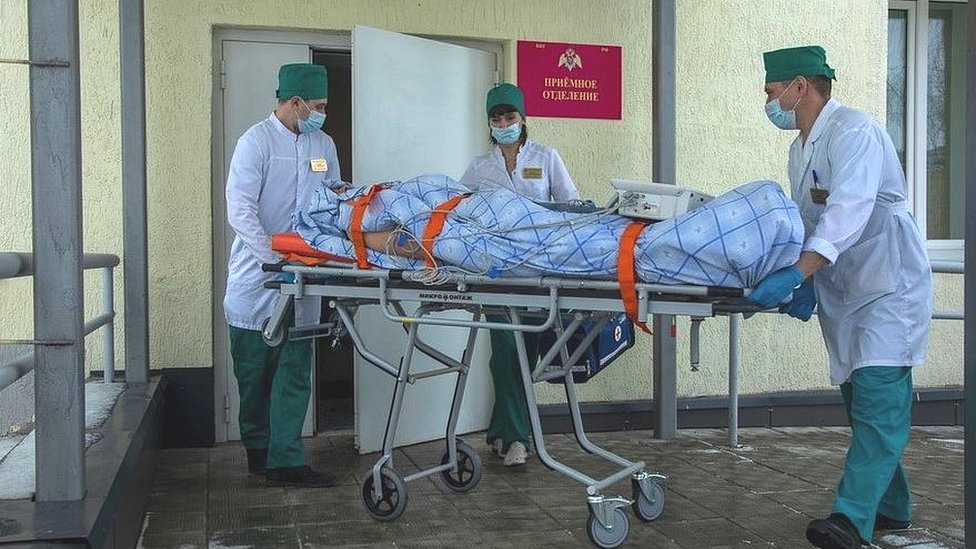1/ Russian Defence Minister Andrey Belousov recently boasted that 96% of injured Russian soldiers treated in hospitals were able to return to duty. However, Russian milbloggers point out that that is only because badly wounded men are usually left to die on the battlefield. ⬇️ 

2/ The '5 mg KGV' Telegram channel highlights Belousov's fallacy in claiming a mere 0.5% mortality rate with the (very graphic) illustration of the case of a soldier who went 32 days without evacuation after having his leg blown off by a drone-dropped munition.
3/ "Due to the impossibility of timely evacuation, the soldier ended up on the operating table 32 days later (!). Active growth of granulation and protruding bone fragments in the area of traumatic amputation are visible.
4/ "Amputation of the left foot according to Chopart was performed. Amputation of the right leg at the level of c/3.
P.S. Unfortunately, such a situation (delay in evacuation to the hospital stage from the line of contact) is becoming commonplace today.
P.S. Unfortunately, such a situation (delay in evacuation to the hospital stage from the line of contact) is becoming commonplace today.
5/ "We can engage in eye-washing and tell each other from the stands about the "achievements" of the medical service in the form of 2.5 hours from the moment of injury to the stage of qualified medical care and 0.5% mortality. 🤥
6/ "In real life, everything develops exactly the opposite way. 🙃
P.P.S. Although the 0.5% mortality rate may be true, because not a single "severe" patient survives to the hospital with such evacuation times..."
P.P.S. Although the 0.5% mortality rate may be true, because not a single "severe" patient survives to the hospital with such evacuation times..."
7/ Alexey Sukonkin passes on a combat medic's explanation of why evacuation takes so long:
"The dominance of drones on the battlefield has expanded the concept of "neutral strip" or "grey zone" from several hundred meters...
"The dominance of drones on the battlefield has expanded the concept of "neutral strip" or "grey zone" from several hundred meters...
8/ "...in the latest Combat Regulations of 2005 to several kilometers in today's reality. Assault columns travel an hour or two, or even more, to the "dismounting line".
9/ "Accordingly, a soldier who is wounded in combat does not have the opportunity to be evacuated immediately, since the equipment that delivered him there has either already burned out or left so as not to burn out, and when the next "taxi" will arrive is unknown.
10/ "For example, during the storming of Novomykhailivka [near Pokrovsk], the assault columns began to leave Kremenets at five o'clock in the morning, and approached the eastern outskirts of Novomykhailivka by seven o'clock, where they were stopped 800 meters away by mines and…
11/ "…enemy fire, and two groups had to cover this distance running, under machine gun fire, which was working "from the direction", from three hundred meters. So, the first wounded were pulled out of the village only on the fourth day. What "golden hour" can we talk about?
12/ "Combat medicine is in for serious reforms, if we are talking about the desire to ensure the possibility of quickly providing specialised care to the wounded, but playing with statistics about 0.5% survival in hospitals is "slightly" incorrect, because it would be necessary…
13/ "…to take into account the percentage of people who died from wounds on the battlefield, who could have been saved if this "golden hour" really existed.
14/ "In addition, medical experts say that almost always only in the hospital does a picture of the injury appear, and everything that happened before the hospital, what manipulations were performed on the wounded, remains a mystery shrouded in darkness..." /end
• • •
Missing some Tweet in this thread? You can try to
force a refresh











